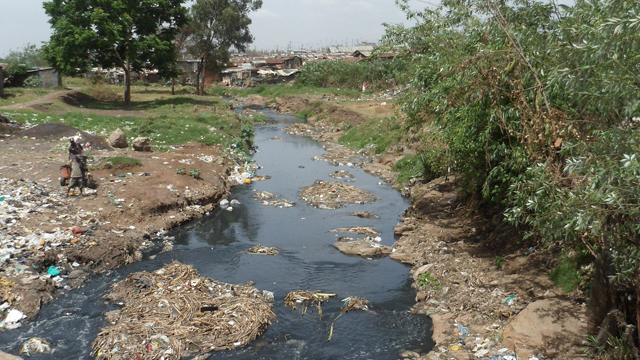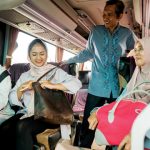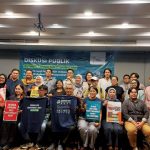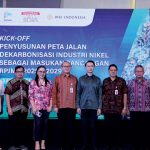Jakarta (Greeners) – River, as one of water resources for human in their daily lives, agriculture, and industry, is in critical condition.
Irwan Gunawan, director of Forestry and Fresh Water, World Wildlife Fund for Nature (WWF), said that per December 2018, from 82 rivers monitored, — 50 rivers in stable condition, 18 rivers improving and 14 rivers in bad condition –.
Based on data published by WWF, 82 percent out of 550 rivers in Indonesia is in bad condition.
To improve the condition, WWF is cooperating with private sector, public, and stakeholders for marine ecosystem in Indonesia.
“We see several interesting facts, such as 25.1 percent of villages in Indonesia has polluted ground water. Hence, WWF have programs focusing to protect water catchment areas, collaborating with private sectors because they’re the polluters and have vital roles in water resources conservation,” said Gunawan in a discussion to celebrate World Water Day, in Jakarta on Friday (22/03/2019).
READ ALSO: Clean Water in Jakarta Contaminated with E-Coli Lead to Residents Exploit Ground Water
Furthermore, he said that private sectors are the best stakeholder for having good water consumption calculation, not consumptive with water, and gain water from official pipes.
This will need to be accompanied by government’s program to provide clean water access for public.
Bappenas data in 2017 shows that the lowest water quality index was DKI Jakarta with 35 percent, meanwhile the highest water quality went to Southeast Sulawesi with 70 percent.
Nur Hygiawati Rahayu, director of forestry and water resources conservation, Bappenas, said that supply and demand for water are not equal in Indonesia.
There isn’t sustainable water supply, while on the other hand, demands keep increasing with rising population.
“It is predicted that Java island will experiencing water level deficit by 2045 and it is concerning and becomes government’s attention,” she said.
READ ALSO: Rehabilitation for Heavily Polluted Pladen Lake Starts This March
Furthermore, she said that current program includes quality improvement and water service extension, such as water distribution infrastructure, environmental conservation, water quality monitoring, water safety plan, regional mapping on water pollution and encourage water efficiency.
Government has allocated special budget or DAK for drinking water with a total of Rp782 million (US$55,258) in 382 areas in Indonesia in 2019.
“All of the activities aiming for clean water and there must be roles taken by the regional government. If us as central government prepare the budget allocation and the one developing is regional administration,” he said.
Meanwhile, Ade Swargo Mulyo, Director of Partnership WWF-Indonesia, said that WWF has commitment to realize the revitalization of six water catchment areas, — Peusangan in Aceh, Kampar-Riau in West Sumatra, Mahakam in East Kalimantan, Ciliwung in West Java, Rinjani in Lombok, and Bikuma in Papua –.
Furthermore, he said the revitalization is nature-based solution which consists of forest and wetland restoration, connecting rivers to lowlands which constantly flooded with water, and set up vegetation buffer in the river banks.
Reports by Dewi Purningsih



















































